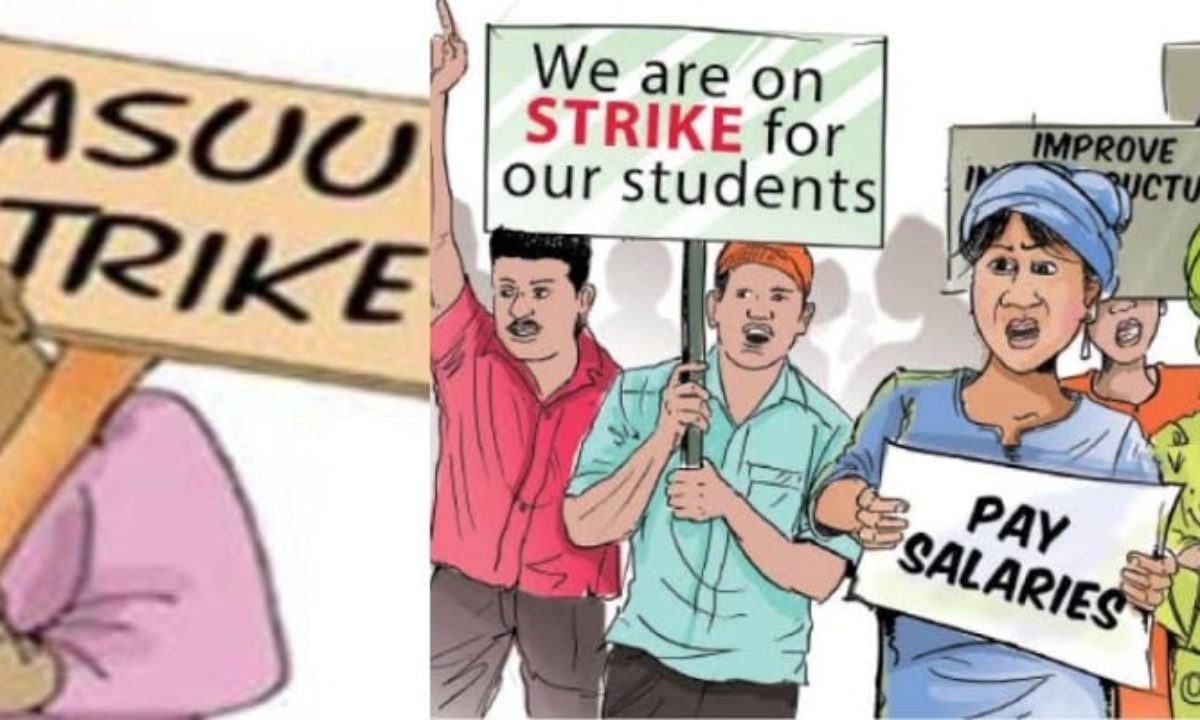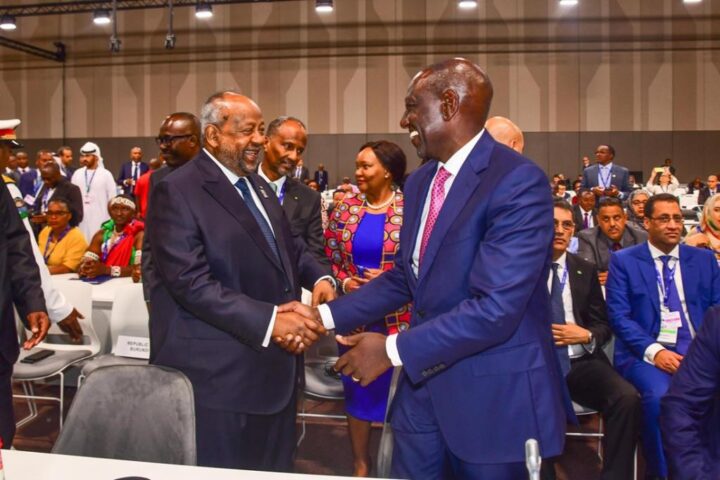The industrial action by the Academic Staff Union of Universities (ASUU) has already entered its 200th day and the defiant Nigerian government needs to make a 360-degree turn to save the day. It is hoped that Federal Government’s proposed meeting with Pro-Chancellors and Vice Chancellors of federal universities on Tuesday September 6, 2022 is realistic enough to change the narrative.
No doubt, even as the nation stands at the crossroads, we see a government intent on breaking the will and ranks of ASUU – giving the vulnerable public the impression that the striking ASUU is the problem.
Join our WhatsApp ChannelThe group had finally declared indefinite strike after months of back- and-forth with government to press home their demand for payment of salary arrears while they were on strike, in addition to implementing other agreements reached with government. This decision was made after the Federal Government insisted on “no work, no pay” as deterrent for the union members and warning signal to other groups that may intend to embark on similar action.
READ ALSO: Editorial: Team Nigeria For ‘One Nigeria’
ASUU had on February 14, 2022, embarked on strike following the failure of the federal government to pay earned allowances, revitalisation funds to universities and release White Paper reports of visitation panels. The Union also demanded that government should jettison the controversial and recently adopted Integrated Payroll and Personnel Information System (IPPIS) and return to the use of the more realistic University Transparency Accountability Solution (UTAS) in salary payment to university workers and a renegotiation of the ASUU-FGN 2009 allowance.
The strike, which was a one-month warning strike, was rolled over and over until the Union eventually declared indefinite action recently. According to the Minister for Education, Mr. Adamu Adamu, “contentious issues between the government and ASUU had been settled except the quest for members’ salaries for the period of strike be paid, a demand that Buhari has flatly rejected.”
Certainly, lack of commitment on the part of government is at the root of the unending crisis. It is baffling that the government would allow strike to degenerate to this extent, while it throws billions on ‘uneconomic’ matters. It is becoming obvious that the days are gone when the Nigerian elite cared for the interest and welfare of the less privileged. Yet, our politicians mouth the platitudes of ‘better Nigeria’ even as they continue to tap its resources for the benefit of only a few.
The lack-lustre showing of Nigerian graduates and dearth of market-driven skills in the last two decades are indicative of the rot our educational system has become. The growing number of student visas year-on year also reveals that Nigerians have lost confidence in the nation’s education system. Figures from the Home Office reveal that 8,384 and 65,929 Nigerian students were granted sponsored visas in 2019 and 2022, meaning that 57,545 more Nigerians elected to study abroad in just one year (discounting 2020 and 2021when travels were restricted as a result of the COVID-19 pandemic).
The assertion, by the former Permanent Secretary, Federal Ministry of Education, Arc Sonny Echono, in December last year, about two months to the commencement of the current strike, is worrisome and should be taken seriously. Echono who is currently the Executive Secretary, TETFUND, insisted that successive administrations in the country had not been able to implement many aspects of the agreements with ASUU years after they were signed because they were reached under duress. He said that, they were usually intended to find quick solution to the crisis, especially when there is pressure from the public on the need to reach compromise for a particular strike to be called off. Such statement coming from a man that sat over most of the meetings with ASUU in recent times, proves our suspicion that government’s lack of commitment to the striking workers is deliberate.
Since its establishment in 1978, for the failure of the Nigerian Association of University Teachers (NAUT) to tackle issues bordering on intellectual (academic) freedom, funding and university autonomy which at the time was overlooked by the military regime, ASUU has been at the neck of government with demands for improved welfare for members and the academic institutions. This time around, the President of ASUU, Professor Victor Emmanuel Osodeke warned that the strike would be comprehensive and indefinite until government fully implemented unsettled issues as contained in the Memorandum of Action (MOA) of 2017 and also conclude the renegotiation of the 2009 agreements.
Agitations by ASUU is age-long and disputes were usually resolved through resolutions and agreements. We are certain that, if these agreements were kept by the government, another strike wouldn’t have been necessary. Frustrated with the non-implementation of the Memorandum of Understanding (MOU) in 2013, the Union chose instead an MOA in 2017 and 2019. The MOA, which is distinguished from the past MOUs, by its implementable timelines, though novel in the Nigerian labour lexicon, may be a reminder to government of its non-responsiveness to MOUs and agreements. Events have proved over the years that terminology alone does not drive commitment to an agreement. A rose would smell as sweet even if it’s called by other names, just as a sepulchre would, the reverse – regardless.
Evidently, the government betrays lack of disposition to university education or any other form of education as nothing stops it from listening to the university teachers union if it so wishes. The recent release of $235 million to foreign airlines to prevent halting of air connectivity to Nigeria, goes to show that if all government officials, including senior civil servants’ children are made to attend government owned universities, strike would be a thing of the past. The government hurriedly responded to the threat of the airlines because it benefits only those in government and few privileged individuals. Moreover, the same Federal Government that claims that it does not have money to finance ASUU’s demands, budgeted the sum of N443 billion for fuel subsidy in the 2022 Appropriation Act, but, subsequently increased it to N4 trillion through a supplementary Appropriation Bill already approved by the National Assembly. If feelers from the Minister of Finance, Mrs Zainab Ahmed is true, then, fund for fuel subsidy will hit N6.5 trillion before the year ends. Who is the real beneficiary of this subsidy? Even, at a time subsidy was yet to be removed from diesel and kerosene, the amount spent on all petrol products was never this high.
The President Muhammadu Buhari-led administration has been borrowing from China and other global bodies to finance critical projects. It has also been upbeat on taxes for the same reasons. We wonder why this government in its latest disposition to funding recurrent expenditure with loans could not have funded the ASUU matter as we do not consider any infrastructure or project more critical than an improved education system. At least, more than any empowerment programme and the so called infrastructure, education yields the fastest gains on investment.
On the flipside, we believe that, no matter how well-intentioned, ASUU cannot be fighting for too many things at the same time. A labour union is primarily interested in the welfare of its members, we hope that ASUU is not distracted by attaching improved standards of education, for instance, in their demand. Such matters should be allowed for the government ministry, departments and agency (MDAs) in charge of education. If the quality of education in Nigeria’s university system worries a labour union this much, we can imagine the burden on National Universities Commission (NUC) whose job is to ensure improved standards for universities.
Already, many persons out there are disenchanted because they feel the strikes have become incessant and so must be controlled. With time, the group will lose the sympathy of many Nigerians regardless of the genuineness of its intention. This is what the government has hoped for by urging parents and students to beg ASUU to call off the strike.
The 2005 amendment of the Trade Union Act by Obasanjo’s administration, that made the membership of trade unions optional, provided the avenue for some State Government-owned universities to opt out of ASUU. Today, a union that should be an umbrella body for lecturers in both public and private universities has its numerical strength reduced by more than half in the absence of private and some State-owned universities which opted out of the Union.
Not done, speculations are rife of the current administration’s plans to weaken the union further. Even now, a splinter group is clamoring to replace the group already, and we have our doubts that the government is not also involved in it. The question is, if ASUU is proscribed as speculated and the new group established, what other interest will the new group champion for the striking workers outside the demands by ASUU?
It’s this newspaper’s submission, therefore, that rather than use blackmail and diversionary means to evade settling a trade dispute with ASUU, the Federal Government should ignore self-serving sentiments and commit to the agreements it reached with the workers. Let it add to the very few legacies of the Buhari administration, that it was in his time, that all trade disputes with ASUU were resolved.
In other climes where government is held to account, the need for a renegotiation would be taken seriously and enough reasons for those involved to resign or be booted out. A renegotiation is recognized by law, but, that can only happen if the former contract had been tried without success. In ASUU’s case, government’s level of commitment is left to our imaginations.
Unless we don’t want to be sincere, nowhere in Africa, are lecturers poorly treated as in Nigeria. A young lecturer in a federal University with a Master’s degree earns below a degree holder in the federal civil service. Not even the most senior professor earns the salary of a director in the federal civil service. Yet, these are those that sit in meetings to negotiate ASUU’s demands.
By the way, our attention is also turned to the demands by the Boko Haram terrorists that western education is evil and should be quashed. They have sustained this campaign over the years through their onslaught against the educational institutions. Leah Shuaibu and some other schoolgirls who are still in captivity are painful reminders of their stance.
We therefore hope that the country, by its refusal to honour agreement it signed with its workers, would not directly and indirectly be yielding to the demands of the Boko Haram and helping them to accomplish their goals.
















![Gender Activism An Economic Necessity In Africa [PBA Editorial]](https://www.primebusiness.africa/wp-content/uploads/2023/11/vaw-720x480.png)

Follow Us